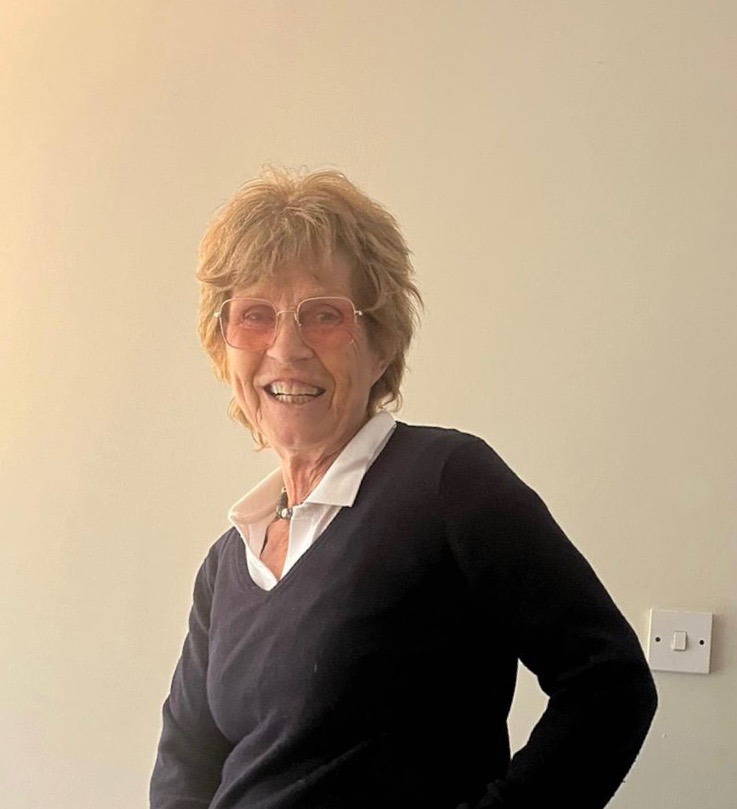How The GB&I Side First Won The Curtis Cup - 1952
As celebrated amateur golfer Jeanne Bisgood CBE approaches her 100th birthday, she talks to Lewine Mair about her golf journey and how the historic match was won
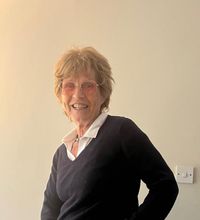
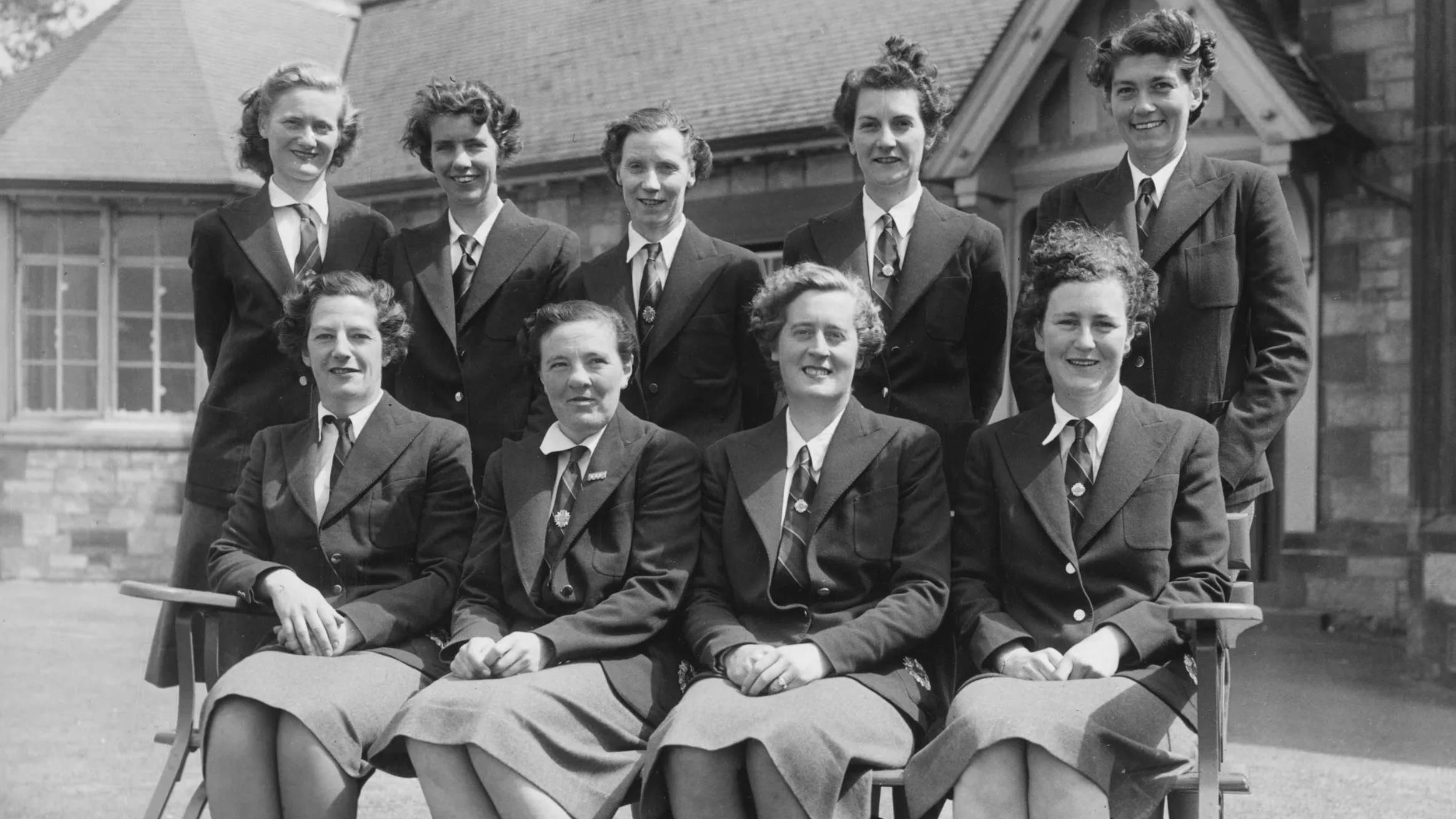
On 11 August, Jeanne Bisgood, who in 1952 played in the first GB&I side to defeat the Americans in the Curtis Cup, is throwing a party at Parkstone Golf Club, where she has been a member for 80 years, by way of celebrating her 100th birthday. Although she had three falls in January, there were no broken bones and she did what you would expect of a petty officer in the WRNS in keeping calm and carrying on. As, indeed, she did when anything went awry on the golf course.
“I’ve been so lucky with my health,” she said a couple of weeks ago. To give an example of her fuss-free attitude to life, she was 93 when she went over to Ireland to watch the ’16 Curtis Cup at Dun Laoghaire. There was a coach to take guests back and forth from the official hotel and, on the occasion it failed to put in an appearance, she hopped aboard a local bus.
For a brief summation of her working life, Bisgood, went to Oxford to study history and left after her first year to join the WRNS at Stanmore, one of six outstations deployed for Bletchley Park’s Enigma codebreaking operations. She and her sister code-breakers were told not to talk about the experience for another 30 years and, as far as Bisgood knows, every one of them honoured that arrangement.
It never occurred to Bisgood to go back to Oxford - “I wanted to get on with the rest of my life” - and, when she departed the WRNS, she trained as a barrister. At the same time, she worked on the golf she had learned from her father, a wealthy stockbroker and a Somerset County cricketer who had installed a tennis court and a putting green in the family garden.
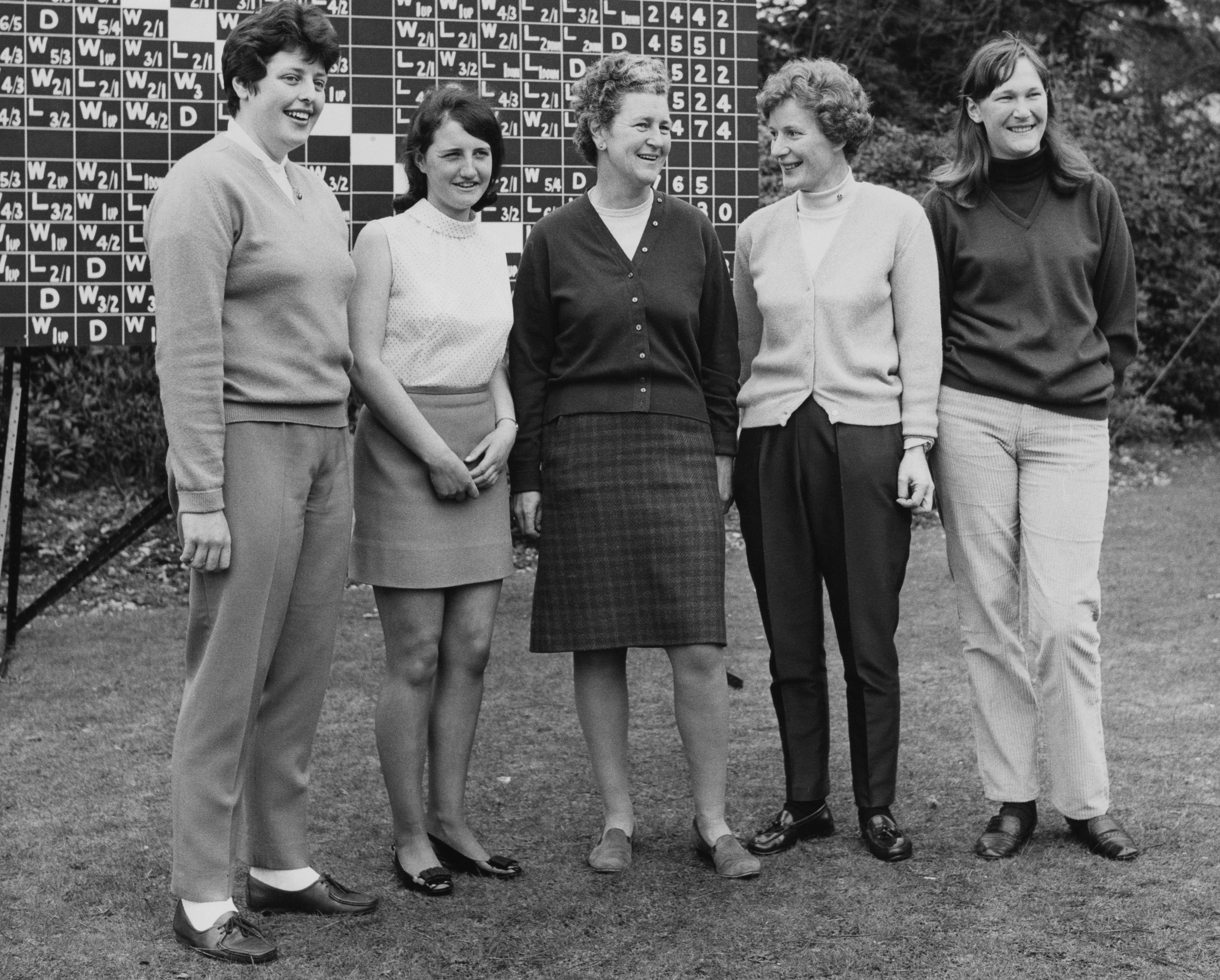
l-r: Mary McKenna, Kathryn Phillips, Jeanne Bisgood (Team Captain), Belle McCorkindale Robertson and Dinah Oxley, ahead of the 1970 Curtis Cup match
Post war, golf made “a proper return” in 1946 and, in 1951, Bisgood won the first of her three English championships, with her reward a place in the following year’s Curtis Cup at Muirfield.
She will never forget that week. In those days, women’s amateur golf attracted much the same attention as the men’s and a sizeable corps of golf writers was to hand for what they assumed would be one more resounding American victory. (Since 1932, the Americans’ unbeaten run had known nothing more upsetting than a halved game at Gleneagles in ’36.)
With Muirfield one of the most famous all-male venues of them all, it goes without saying that there were a handful of quirky happenings on the practice days. Bisgood, who was awarded a CBE in 1982, can remember arriving at the club on the Monday, only to be told that she and her teammates could not practise until after 2.45pm. Apparently, the men’s Court of Session always played on a Monday and they had to take precedence.
Subscribe to the Golf Monthly newsletter to stay up to date with all the latest tour news, equipment news, reviews, head-to-heads and buyer’s guides from our team of experienced experts.
Next, there was the note which Pat Ward-Thomas of the Guardian found pinned to a wall in the men’s locker-room. The note warned the members of the women’s impending arrival and advised that the club had invited them for tea one afternoon. The hope was that the members would not be unduly inconvenienced.
Yet as much as the above information appealed to the golf writers, it paled into insignificance as against the match itself, a contest which in those days took in three foursomes and six singles, all played over 36 holes.
GB& I led to the tune of 2&1 at the end of the foursomes, with Bisgood, who was not used on the first day, coming into play - and how - in the singles. A resounding four up after 18 holes, she dispatched Mae Murray, the daughter of a Scottish-born professional by 6&5.
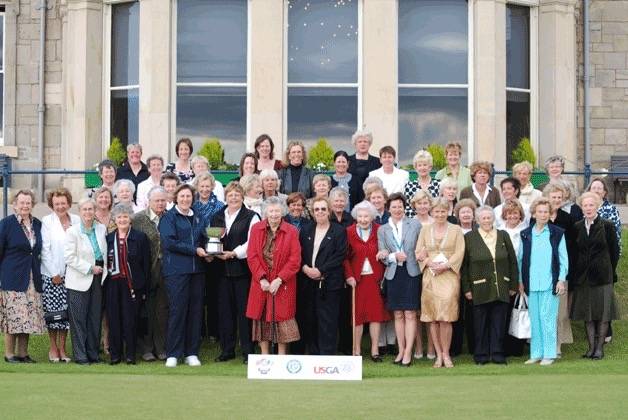
Aged 93, Jeanne joined a group of past Curtis Cup players at the 2016 match at Laoghaire in Ireland
Once the match was level at 4-4, everything depended on Elizabeth Price, who would go on to follow Enid Wilson as the Daily Telegraph’s women’s golf correspondent. Price was two up playing the 32nd against Grace DeMoss when she drove into a bunker and took four to reach the green.
“It will take a socket to save us now,” said a well-known Muirfield member who was standing beside the green as DeMoss shaped to her third, a relatively straightforward pitch.
“No sooner were the words out of his mouth,” wrote Tom Scott in Golf Illustrated, “than DeMoss executed a socket which will for all time be immortal.” The ball shot into the long rough. The shaken culprit made a couple of ineffective stabs at the ball before perpetrating a second socket in front of a crowd which looked on in silent sympathy. All of which explains how Price was able to walk from the green with her two-hole lead intact and went on to pin down the Curtis Cup for GB&I at the short 16th.
For the rest of the ‘50s, Bisgood spent much of her time accruing national titles. Her three English titles apart, there was a Swedish version, a German, an Italian, a Portuguese and a Norwegian.
Bisgood had her reasons for pursuing this route: “If you wanted to holiday abroad after the war,” she explained, “you were only allowed to take a pitiful sum of money out of the country. If, on the other hand, you were playing in an international event, you were allowed to take an extra £10 a day, which made it all possible.”
Though she can remember making her winner’s speech in Italian when she bagged that country’s title in ‘53, word has it that she did the same again when she won in Norway. “If that’s the case,” she said during our recent chat, “I think I could well have done the same thing every time.”
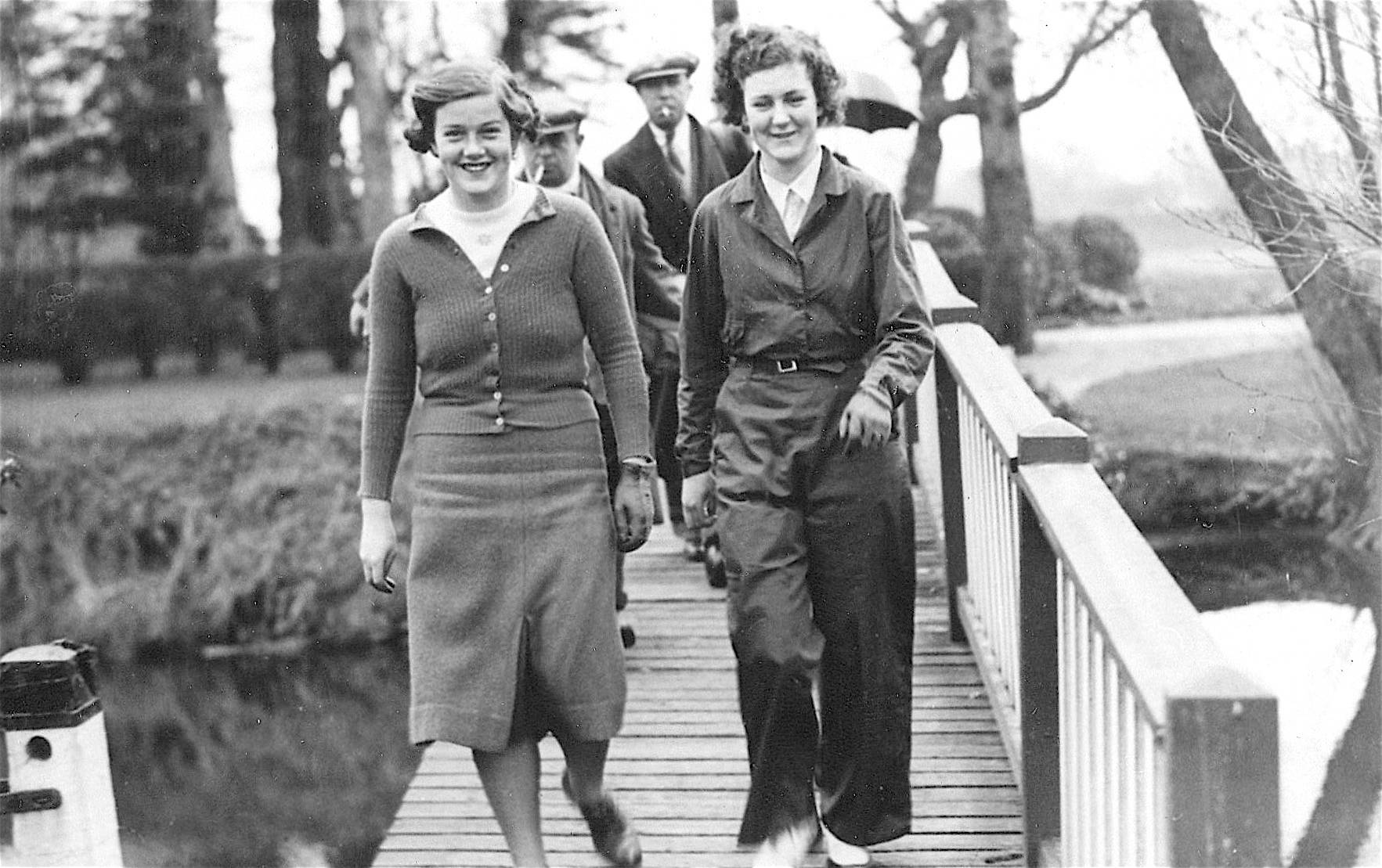
Jeanne (pictured right) with Pamela Barton, who played on three Curtis Cup teams, but sadly died aged 26 whilst serving her country in World War II
It was in 1969 that the 47-year-old Bisgood offered to caddy for the then 23-year-old Barbara McIntosh, a fellow member of Parkstone, in the final of the English Women’s championship at Burnham and Berrow. McIntosh, the proud owner of an invitation to Bisgood’s 100th birthday party, suspects that she would never have won without her.
When McIntosh went into lunch with a two-hole lead, Bisgood instructed her to sit and eat her lunch in a quiet corner before asking if she knew how to tackle 36-hole match play. McIntosh admitted that she did not have a clue, the reason being that she had never reached the final of so prestigious an event before. “Well,” said Bisgood, leaving her plenty of time to chew over her instruction along with her sandwiches, “you need to win the first hole of the afternoon.” She advised taking a handful of deep breaths and clinging to her concentration.
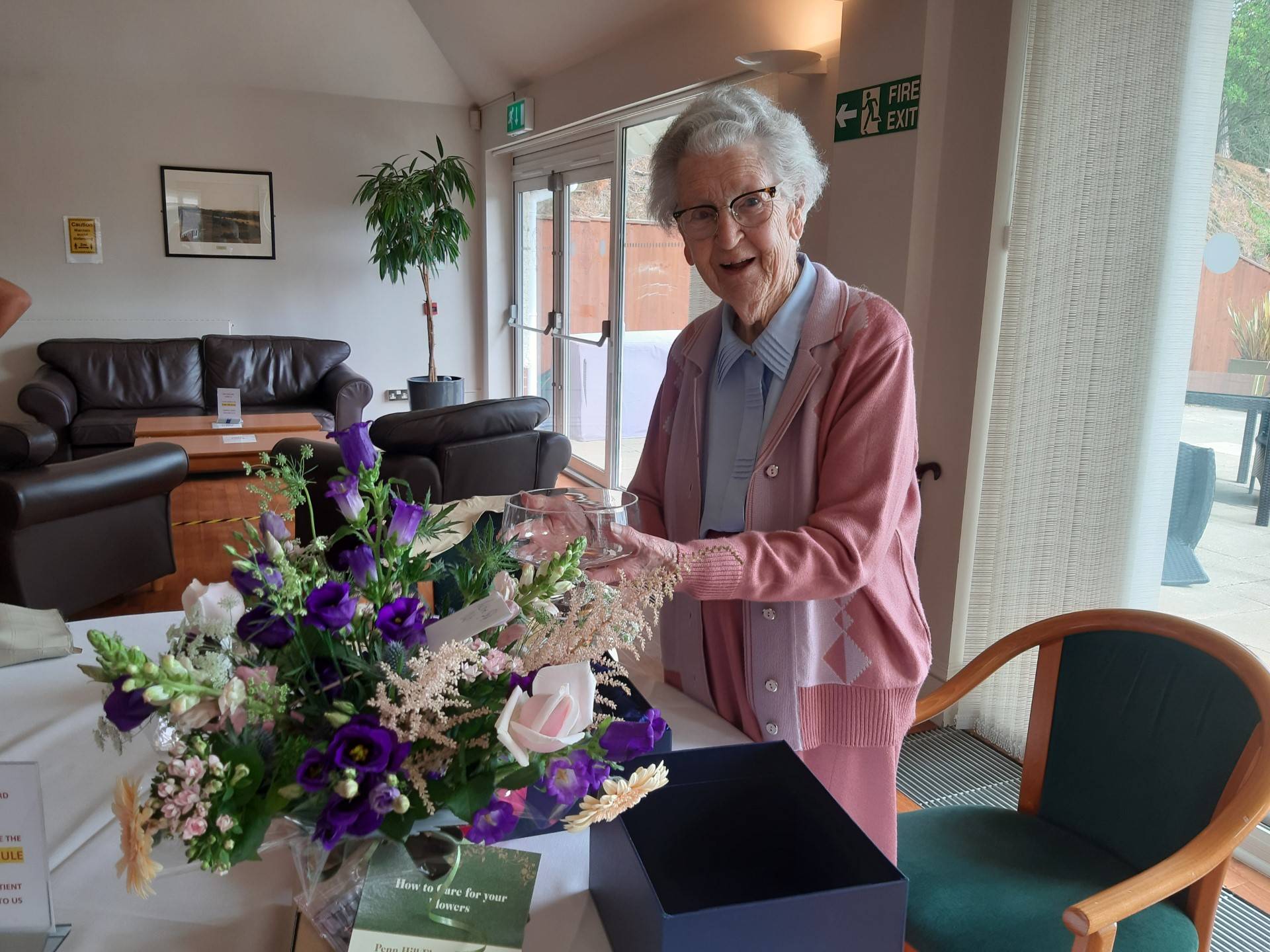
Jeanne Bisgood will celebrate her 100th birthday on 14 August
After McIntosh had won, Bisgood declared that she was way too excited to drive home and duly called upon a lad from Parkstone - one of several who had come along to watch that day’s events - to take the wheel.
Moving on to the subject of her favourite male golfers, Bisgood said, “I like the quiet ones like Bernhard Langer, Matt Fitzpatrick and Luke Donald, our Ryder Cup captain of the moment. “I have to admit,” she continued, “that I don’t have a high regard for those who belt the ball 300 yards and more.
“To be honest, I think it’s a shame that the USGA and the R&A didn’t grasp the nettle years ago in stopping the ball from going too far.” On what matters when you reach 100, Bisgood put her Christian faith at the top of the list: “The closer I get to the day of judgement the more closely I stick to the rules”.
Next, she mentioned the number of wonderful friends she has made across the years and how lucky she was to have had a bit of money. Her hope was that she had used it wisely.
Lewine Mair was the first woman to be signed on as a sports’ correspondent for a national daily paper. She was with the Daily Telegraph for 18 years, six of them covering sport in general and the remaining 12 as the paper’s golf correspondent. She has also written for The Times and, today, is a regular contributor to the American digital magazine, Global Golf Post.
